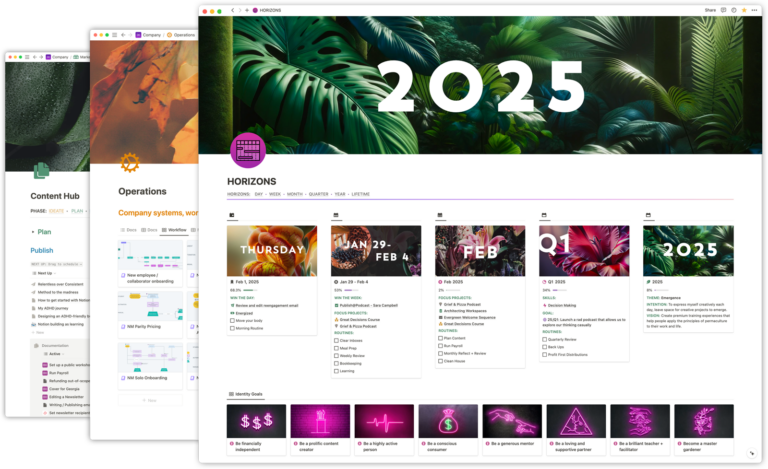Notion has built a reputation as a versatile app used by individuals and tiny teams for knowledge management, project management, and more. While there are an estimated 30 million Notion users worldwide, that still leaves a lot of humans on this planet that don’t use Notion (yet!). Luckily, there are many ways that Notion fans can make use of this tool to collaborate and share info with non-Notion users (that don’t require those folks to adopt the app for themselves).
How to share pages with non-Notion users
Before we dive into some tips and examples of how Notion can be used with folks who don’t have a Notion account, let’s cover how to publish your Notion pages.
1. Click Share in the top right hand corner and select Publish from the menu.
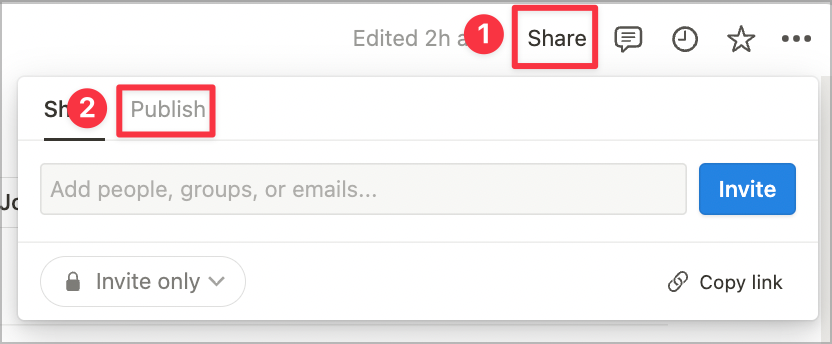
2. Click Publish to web
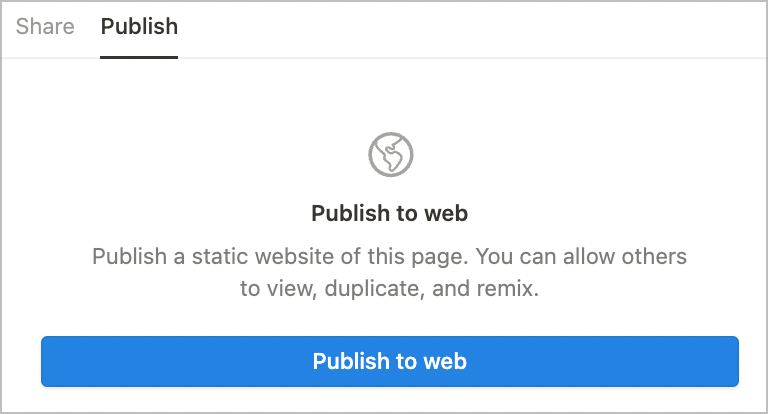
3. You can then adjust the settings for your published page.
- Link expires: want this link to expire in an hour, a day, a week, on a specific date, or not at all? Set that here.
- Allow editing: even if this is toggled on, only logged in Notion users will be able to edit. If you’re sharing this page with non-Notion users, you can toggle this off.
- Allow comments: same as editing above, only logged in Notion users can comment when this is toggled on. Leave it off if you’re sharing this with folks who don’t use Notion!
- Allow duplicate as a template: likely if you’re sharing this with non-Notion users you will keep this toggled off, as they would need to login to a Notion account to duplicate the page.
- Search engine indexing: this allows pages to show up in search engine results. If this is a page that is only meant for a specific person or audience, you will probably want to disable search engine indexing for privacy.
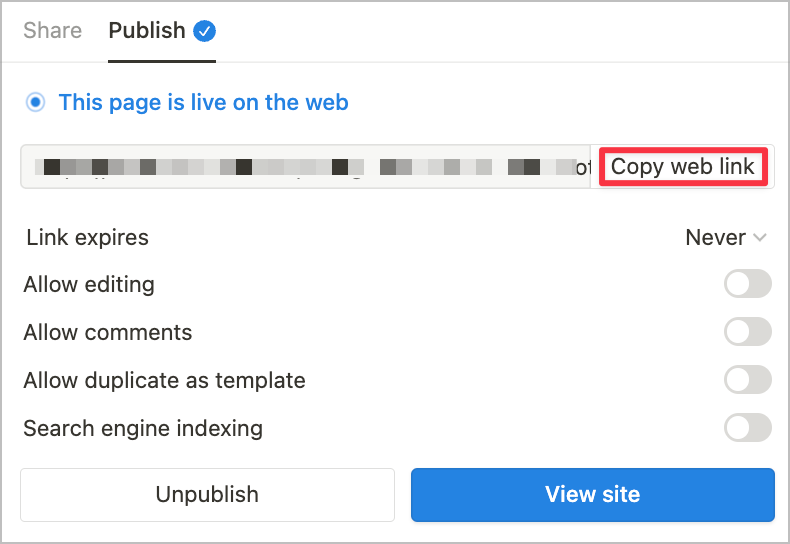
Tip: always share the page link using
Copy web linkshown in the image above. If you copy the link directly from the browser, folks will get a “Continue to external site by following the link below” message rather than being taken directly to your page. You can tell you’ve copied the correct link because it will have your workspace domain at the beginning of the URL (e.g.workspacedomain.notion.site).
Here are some tips for sharing Notion pages with Non-Notion users:
- Keep it simple. As much as possible, stick to headings, text, bullet points, and images. Avoid databases! They will feel less familiar to folks who don’t use Notion and may make it harder for them to make use of the information you’re sharing.
- Provide instructions. If there is any navigation that folks need to do from one Notion page to another, set it up in a way that will feel familiar to them. You can add navigation prompts (eg.
click here to return to the previous page) and hyperlink that text to take them where they want to go. If you do use databases, provide instructions to help people understand how to open up a page or adjust quick filters if they are in use. If you’re using toggles, we often hyperlink the toggle text to link to the first block within the toggle. I’ve seen many instances where folks didn’t realize the toggle opened so hyperlinking the text is helpful because if they click it, the toggle will open up for them. - Utilize link expiry. This is a great way to make sure the information that you’re sharing publicly is only viewable while it is most timely and relevant, and to remove access to content that may become outdated over time.
Here are some ways I’ve used Notion with non-Notion users:
Personal
House hunting dashboard
In 2021 my family was looking for a home to purchase. It was a particularly crazy time in the housing market in the province we live in, so we were considering many different towns as we searched for somewhere that suited us and our budget. I created a dashboard to help us get clear on what we were looking for and to help my step-daughter make sense of the different locations we were considering. I used images and bullet points to help her get a sense of what each area of the province might be like to live in.
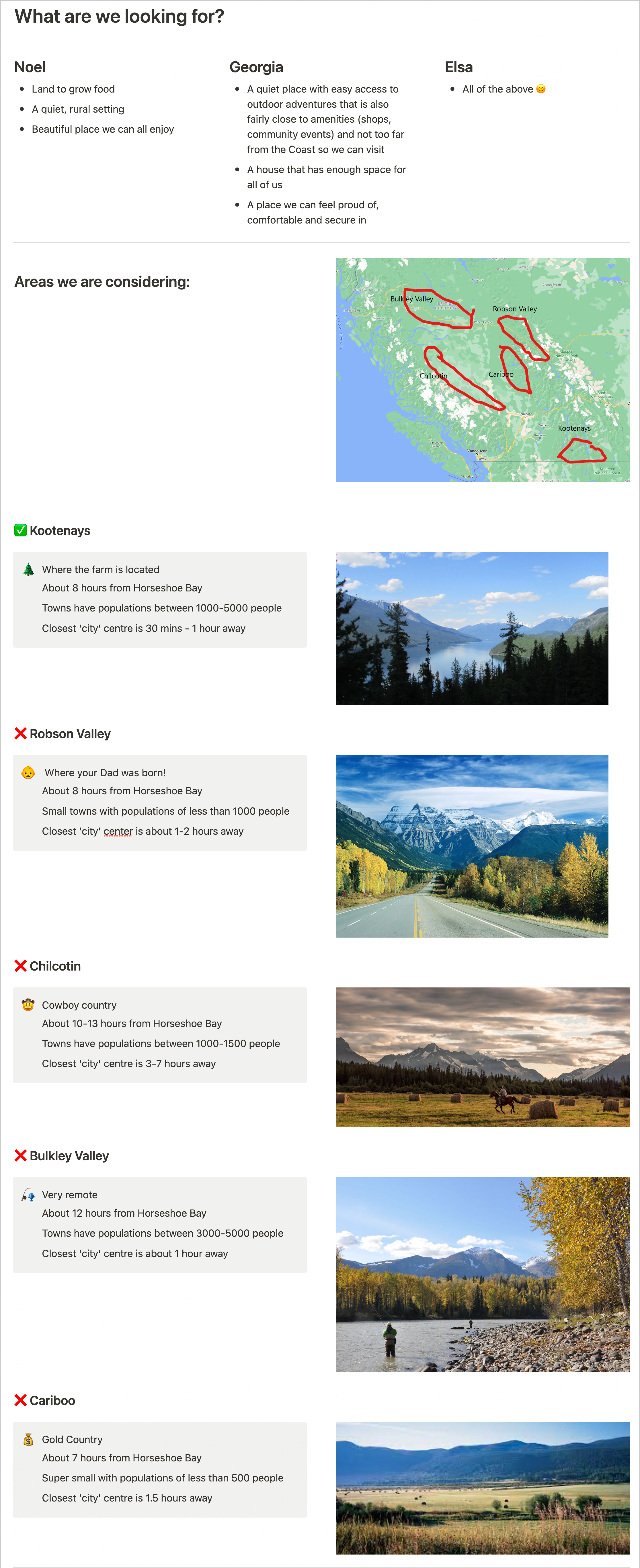
At the bottom of this page I had a database where I tracked all the house listings we were seriously considering and the stage that we were at. During this time houses were selling very quickly, so having a way to track which houses we were planning to view, which we had made an offer on, etc. was very helpful. It also made it simpler to compare the features of each property, rather than having to flip back and forth between online listings.
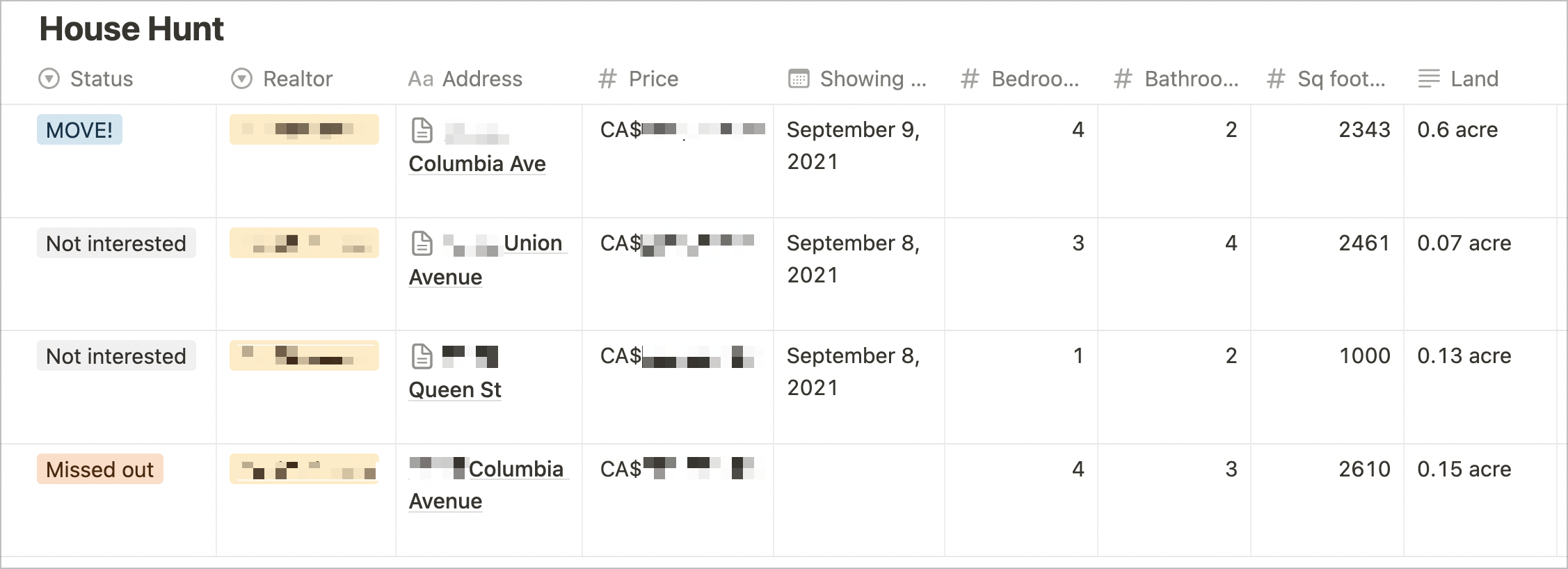
Tenant info page
We rent our basement suite and prepared this page for our tenants when they first moved in. I tried to think of every day or every week things they might have questions about when they first moved to a new house in a new town and created this view-only resource for them. We are out of town a lot so I wanted this info to be easy to access, set clear expectations, and support them to settle in and be comfy in their suite!
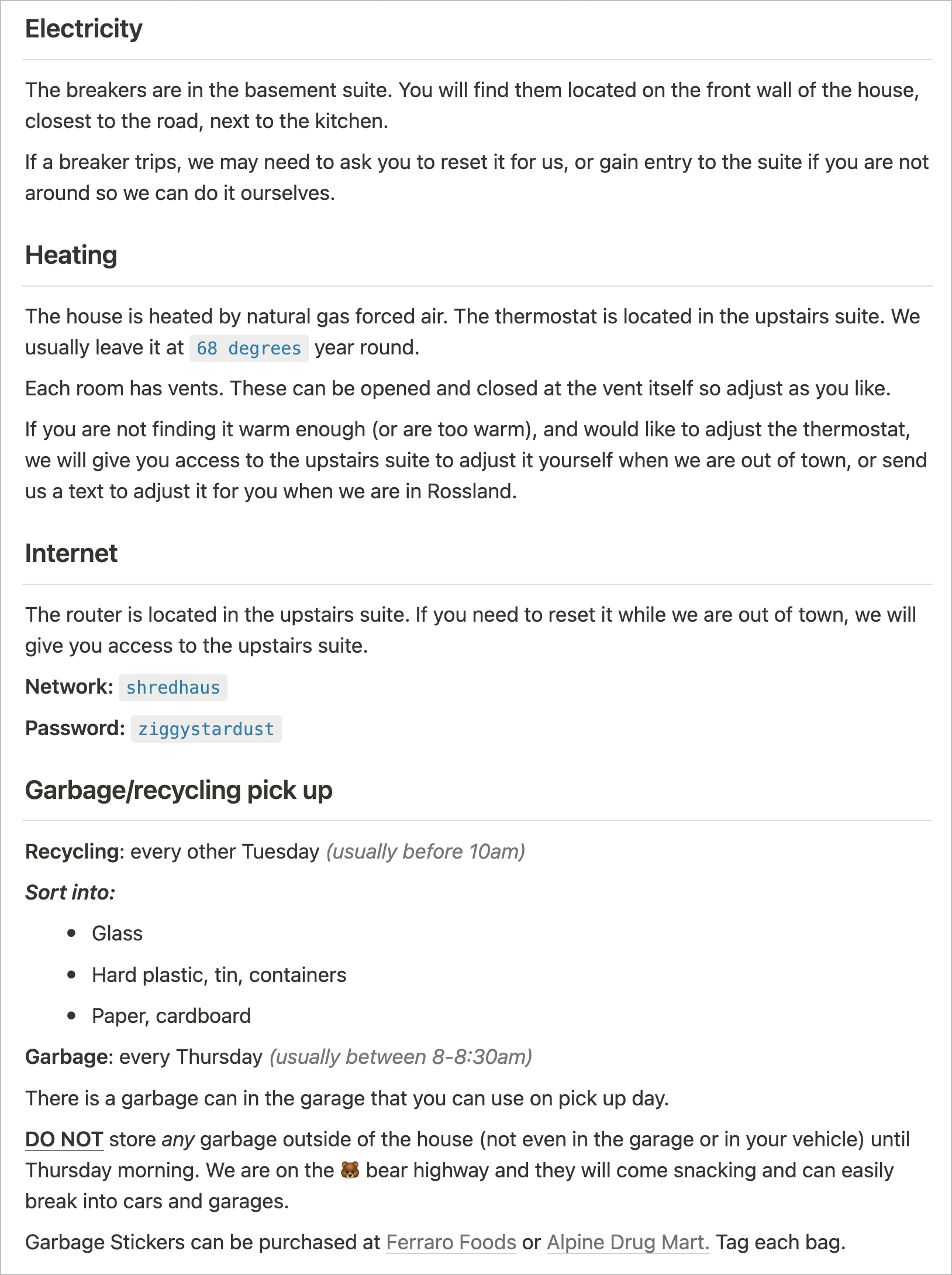
Dog sitter’s guide
My partner would say I am dog crazy, but I just say that I am organized. I put together a page in Notion for anyone dog sitting for us to share all the pertinent info they need to know about our dog Ziggy, including:
- His background, personality, and what he’s like with other dogs and humans
- Meal times and amounts
- His different quirks and anxieties (and strategies for alleviating them)
- Who to contact in case of emergency
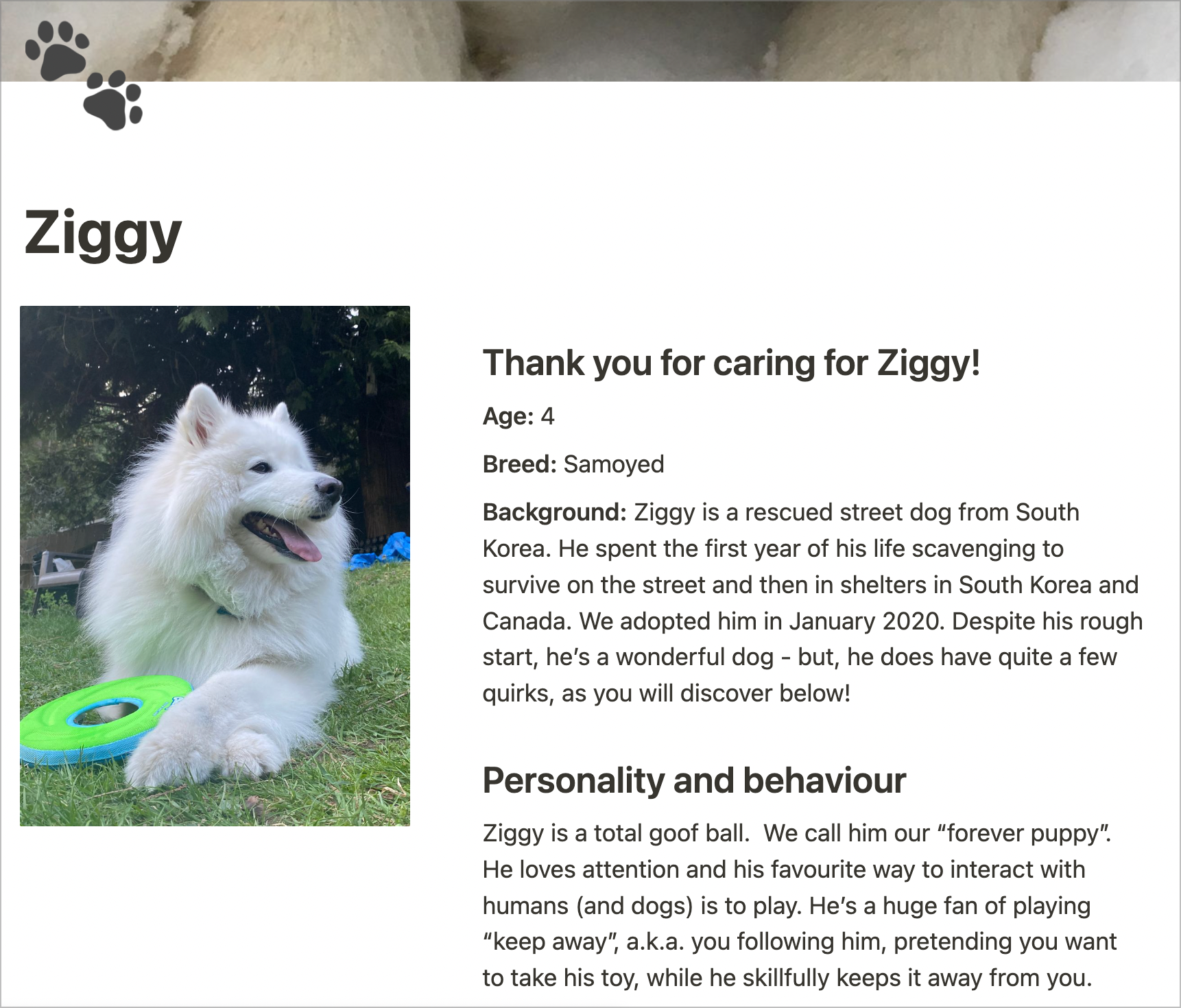
Family reunion organization
In 2022 I undertook the role of organizer for a family reunion to be held the following year. I have a fairly large family and was looking for a way to easily share information with all of them, in a more inviting way than just sending an email or text message. Since Notion is where I would normally collect research anyway, I created a super simple page where I listed out possible dates, locations, and accommodation options and sent them all the link to this view-only page.
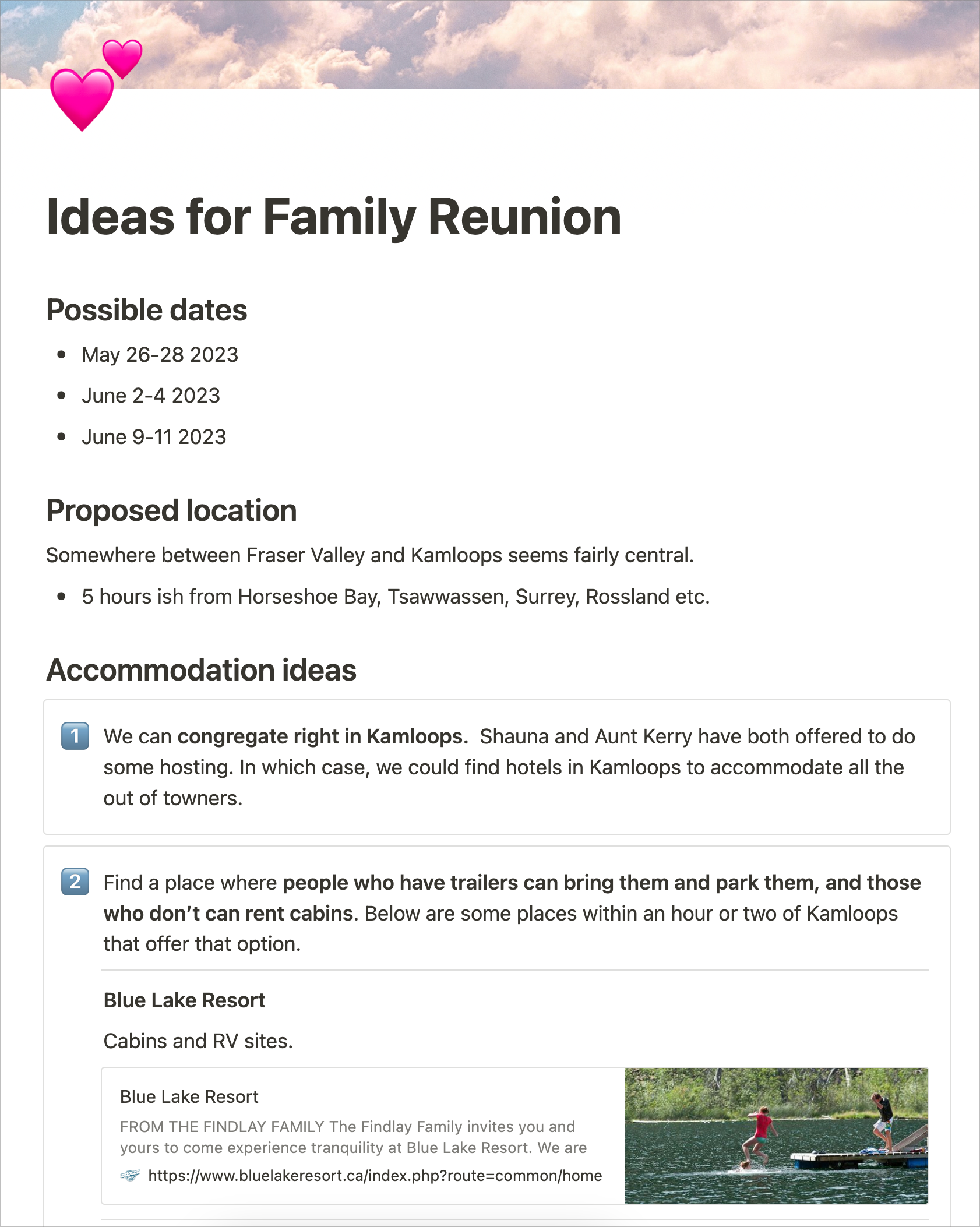
Once we confirmed a date and location, I created another very simple page to summarize those details and provide a one-stop place where my family could find information about when and where we were going and how they could book their accommodation.
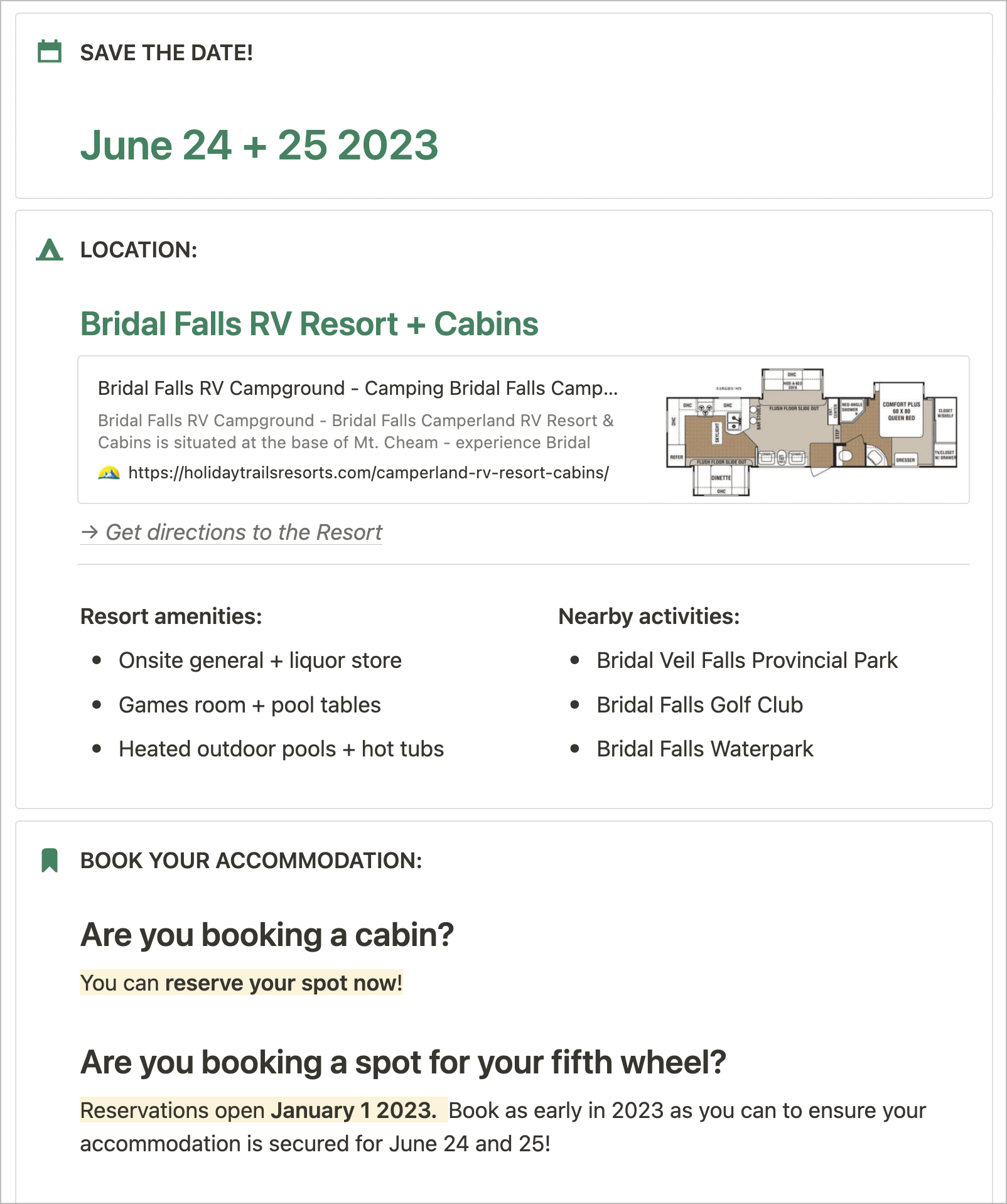
Event invitation
I’ve used Notion to plan and communicate about other events, too! Including a virtual trivia night I hosted for New Years Eve at the end of 2020. Another simple page, that was view-only, that I shared with a bunch of friends who don’t use Notion.
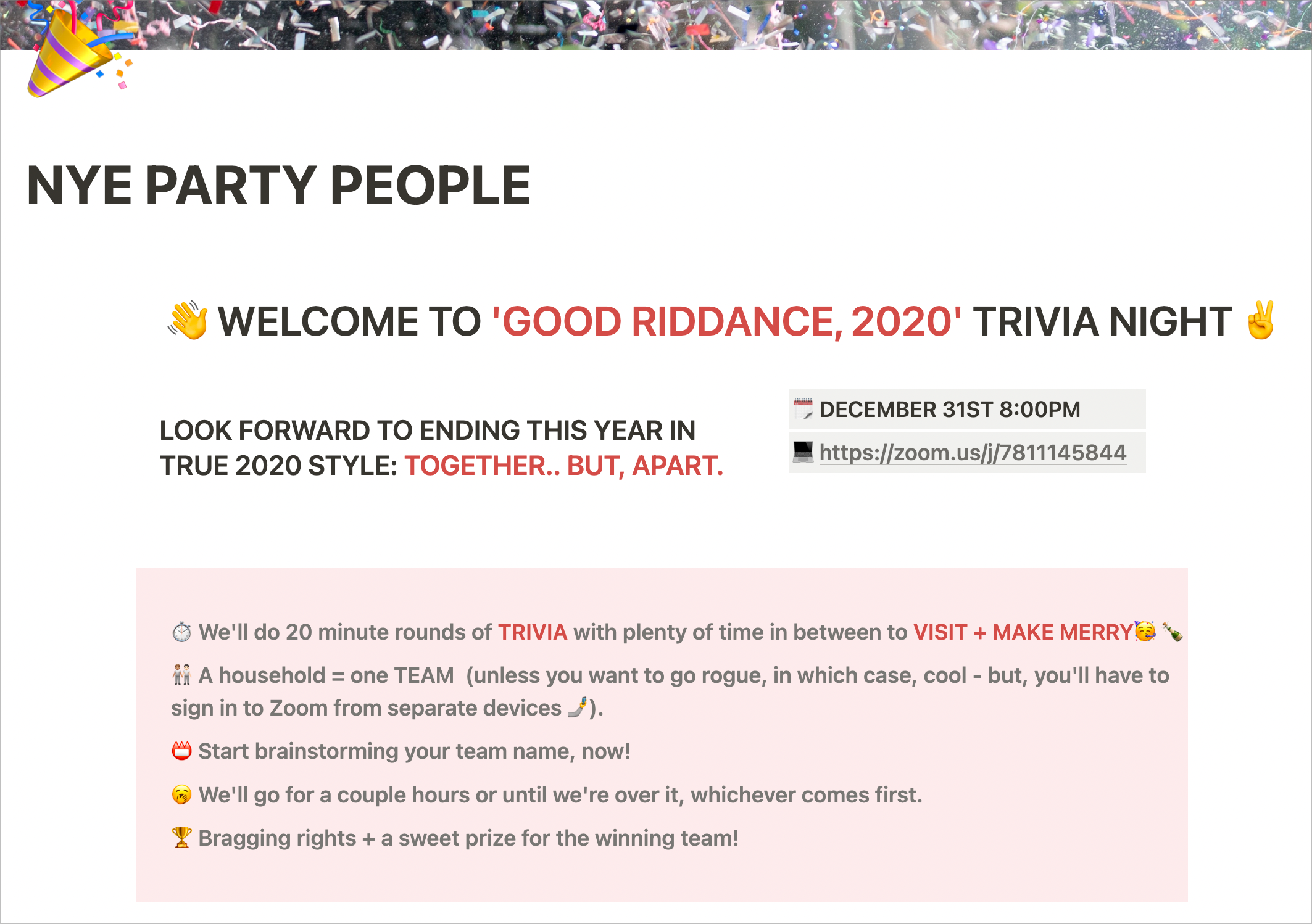
“Now” page
Have you heard of Now pages? Inspired by Derek Sivers, these are pages that give an update about where you’re at and what you’re up to. Creating a Now page is one of the first exercises we have Notion Mastery students complete to get a hang of the different formatting and blocks available. For non-Notion users, this is a page I share from my website that anyone can view to get an update about what I’m currently focused on.
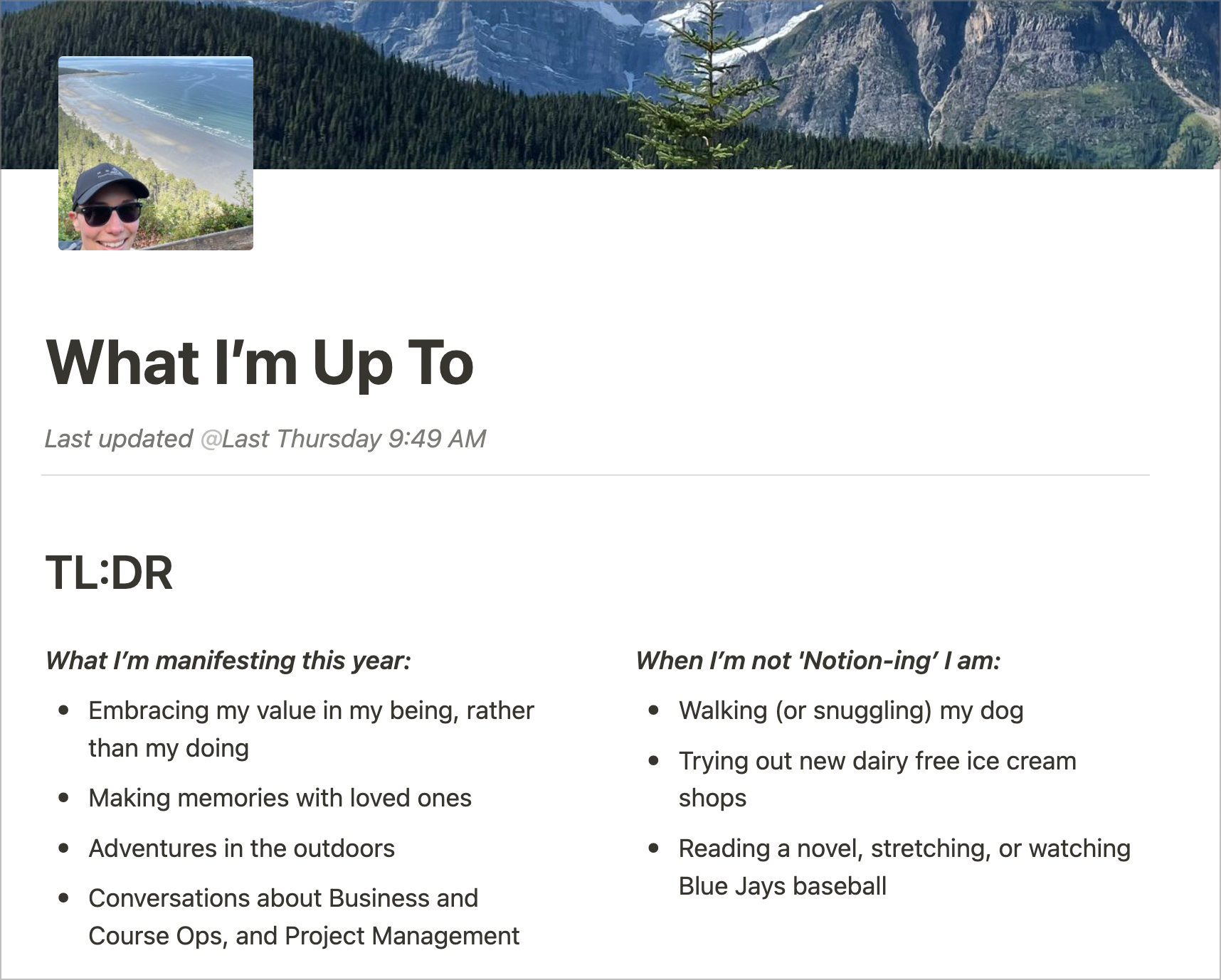
Professional
Resource library
A client we worked with was a professional organization who wanted to have a view-only base from which they could share resources with their members.
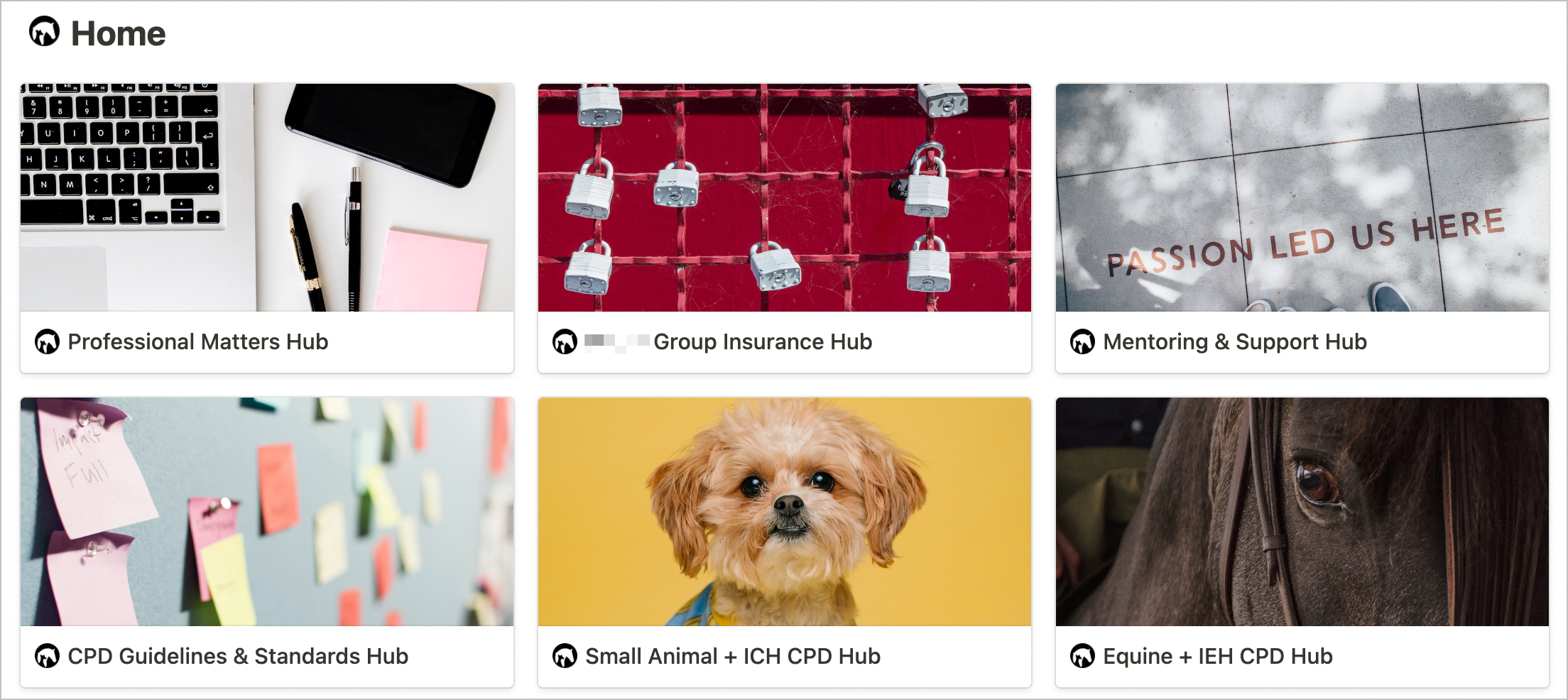
They created a database for the different types of information they wanted to share. Each page in the database had further information to support their members. For the most part, none of their members knew what Notion was (and probably still don’t really) but they don’t need to. This resource hub is a read-only place for them to visit and that’s all they need!
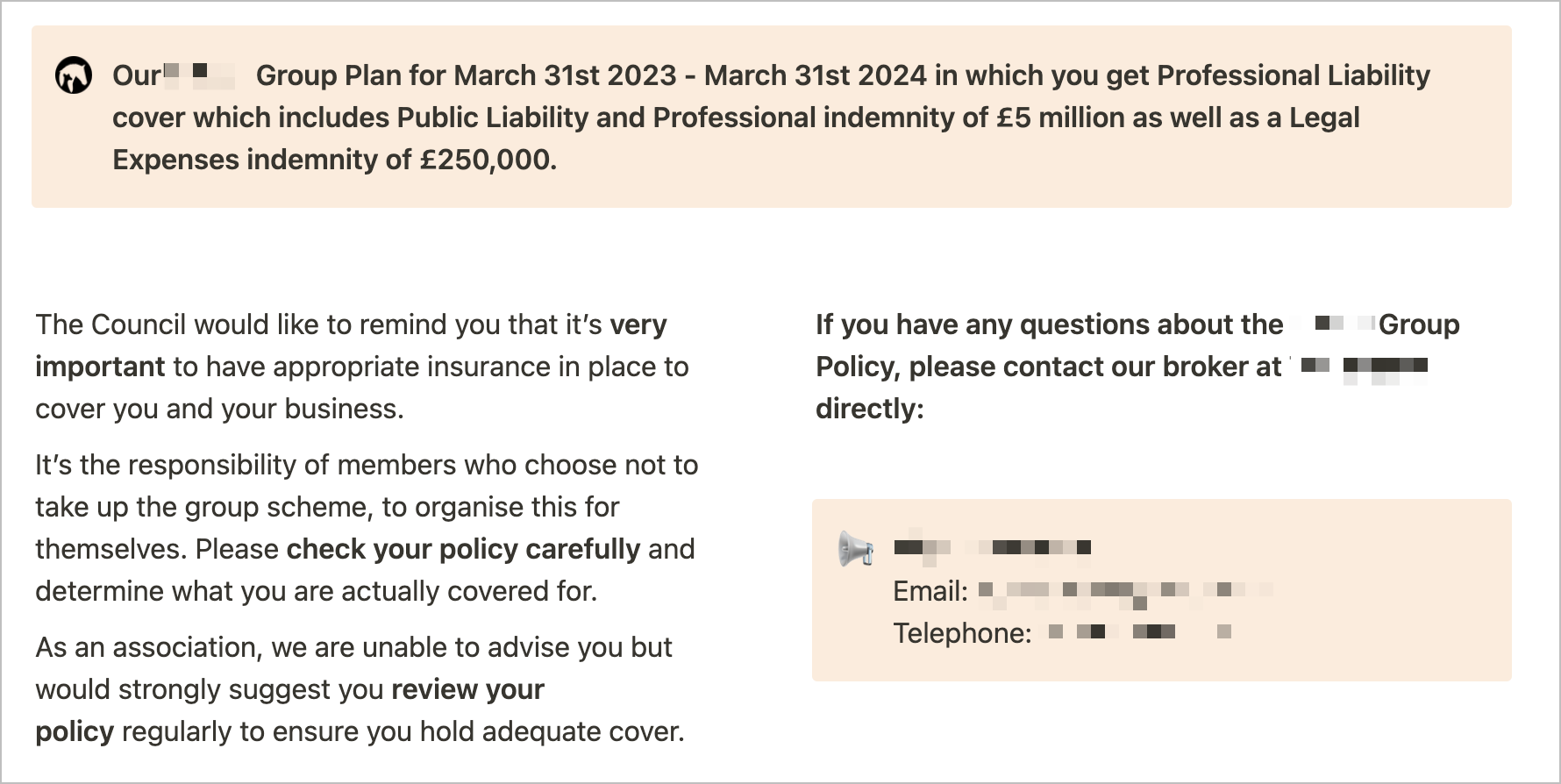
Blog
Rather than a traditional blog on a website, I have a Notion page where I gather together the writing I’ve done about operations, online courses, Notion, and more. I created a TinyURL so I can easily share this page of my thoughts and resources with anyone that’s interested. All of the writing contained within is view-only and does not require anyone to have a Notion account to see it and make use of it.
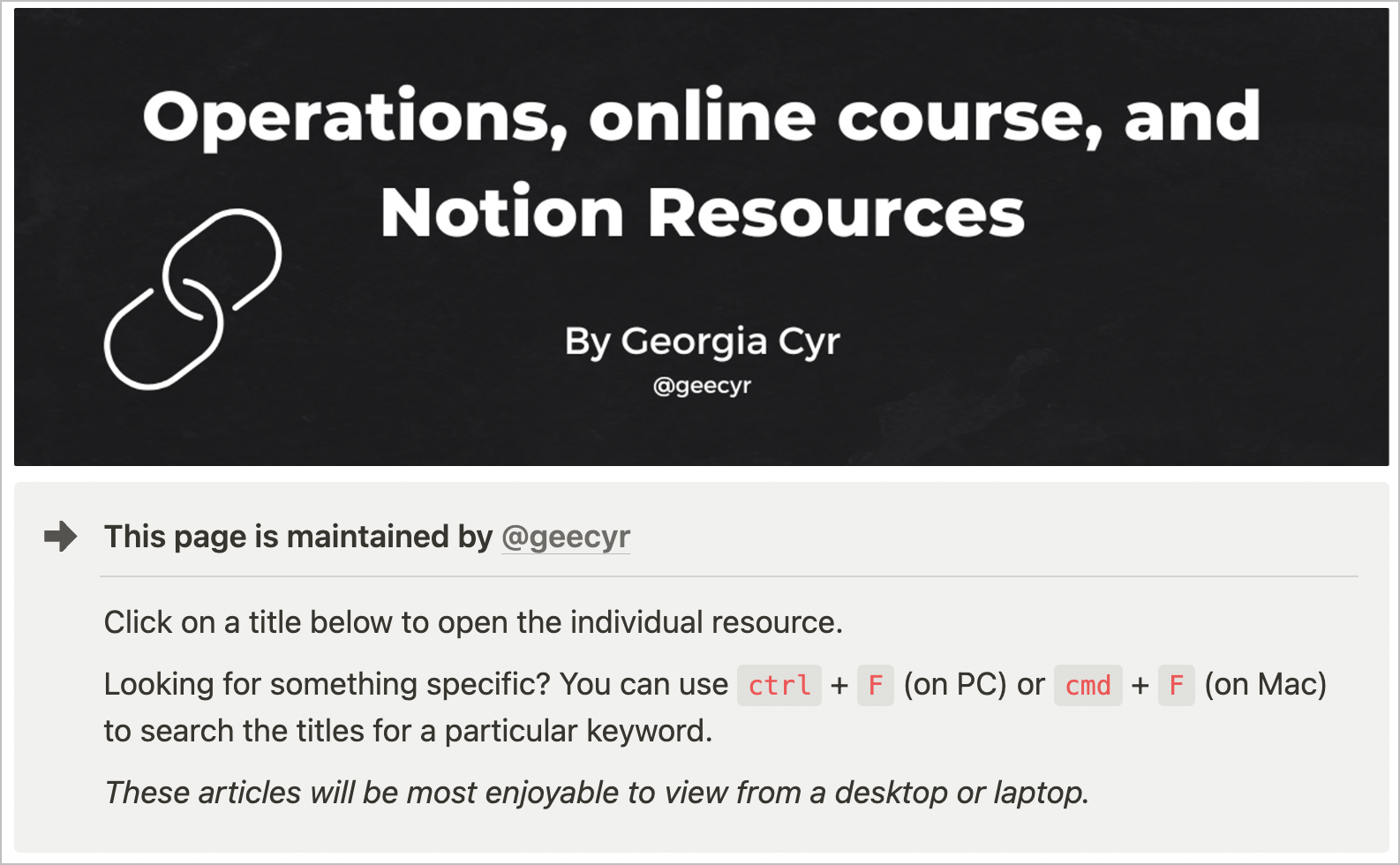
Sharing package options with potential clients
Before I became the full-time Director of Ops at Oki Doki, I spent a few years running my own business offering admin and ops support to a variety of small business owners. None of my clients (except Marie!) used Notion, but I already did use it back then and would share this page with potential clients to communicate the packages that I offered and the related terms and conditions.
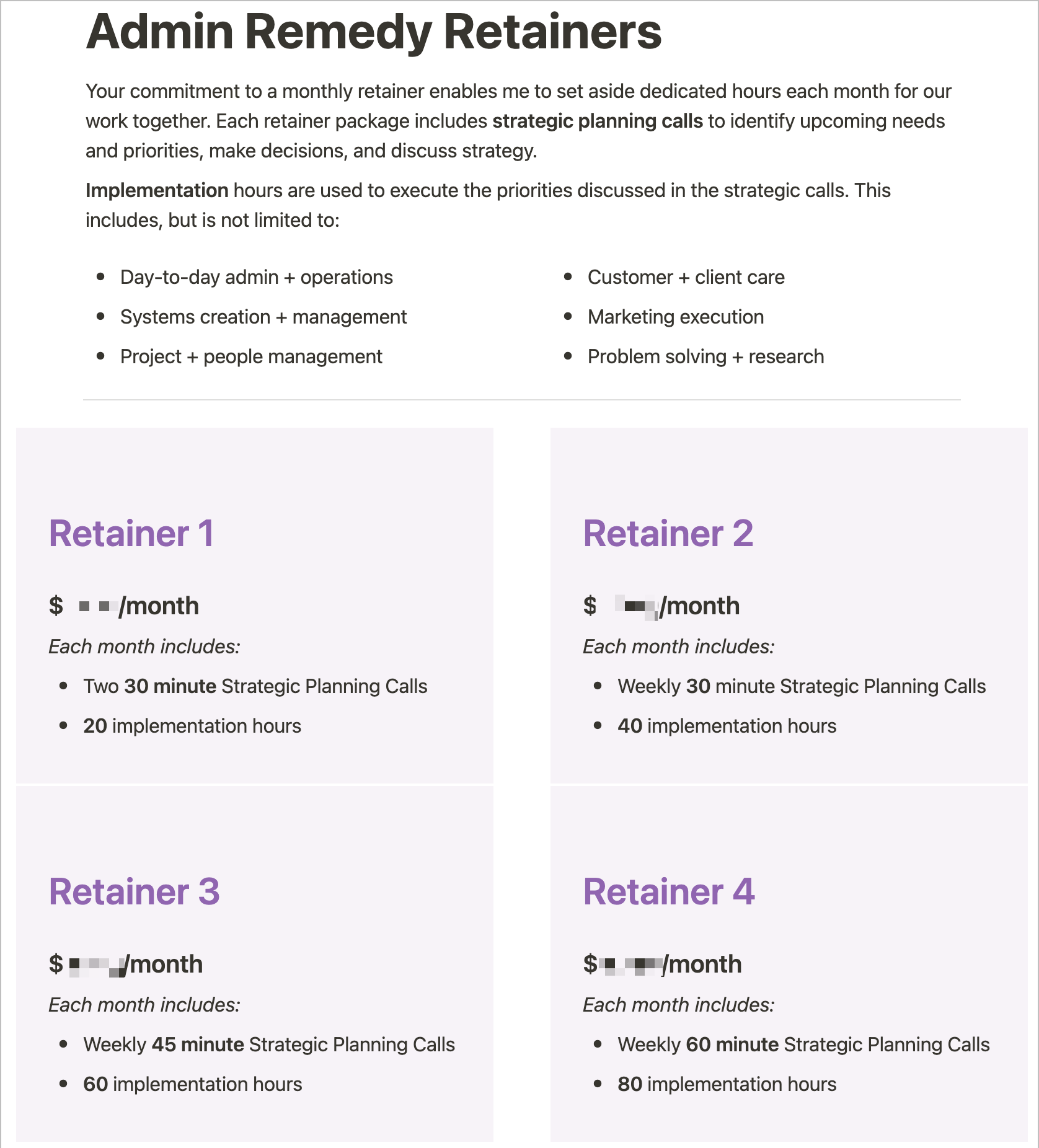
Providing instructions
We often use Notion pages to provide supporting information and instructions, especially during live events. Here’s an example of a Notion page we shared with folks who attended a recent workshop we ran, to make sure they would know how to use Annotate in Zoom. In this instance, I used Notion’s public link expiry and had this link expire after the workshop was over. That way, if this info becomes out of date, we don’t have the link floating around and folks accessing inaccurate info. I can verify the instructions the next time we use this page and make the link shareable again.
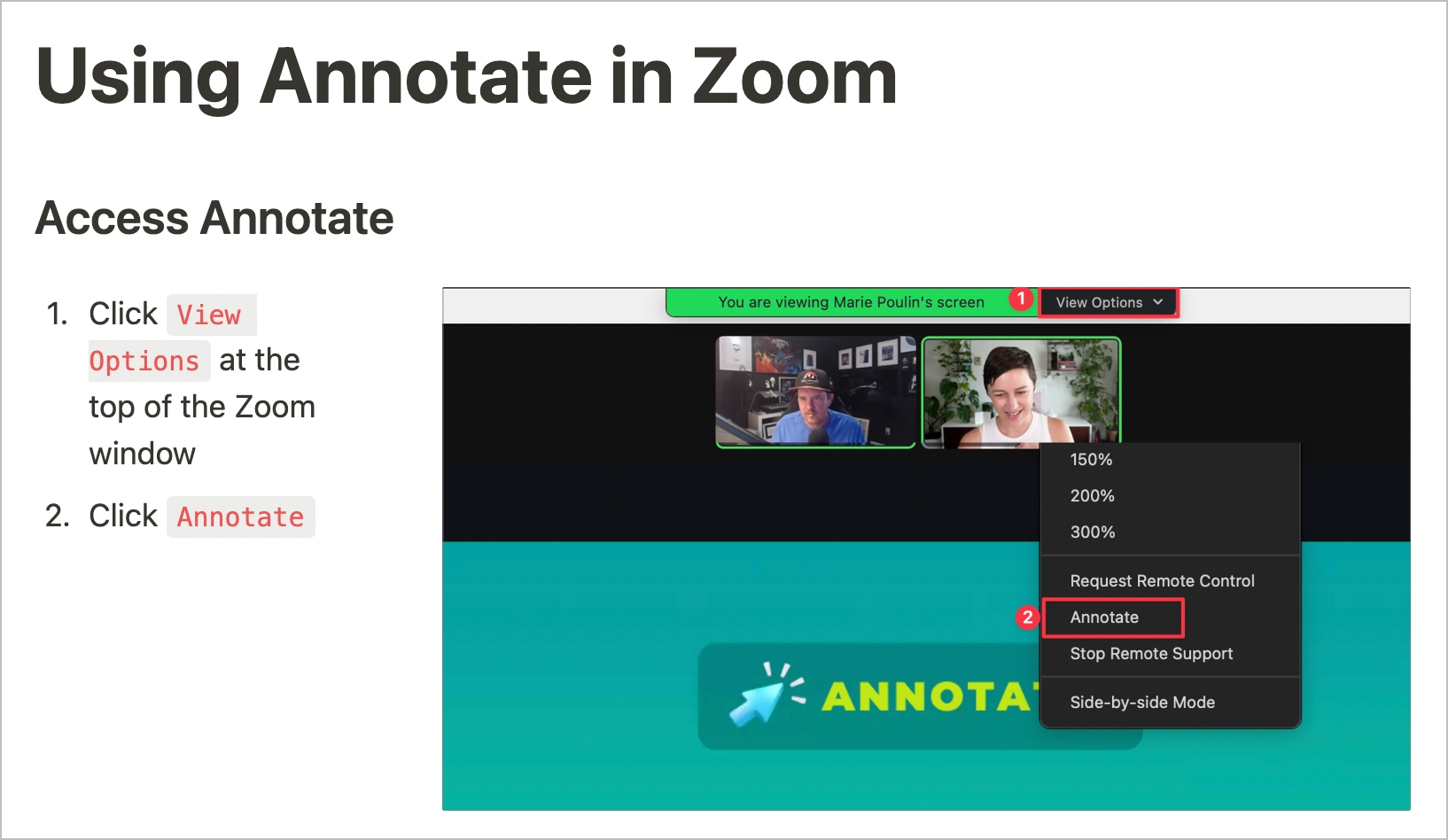
Delivering presentations
Last year I delivered a workshop for the Tsai Center for Innovative Thinking at Yale about how to create a strong, operational foundation for your startup. I knew some of the folks in the audience were Notion-curious, so rather than using something like Canva or PowerPoint, I created my presentation directly in Notion. I found it a convenient tool to use for this purpose because it’s so easy to embed images, GIFs, videos, and Whimsical boards directly in Notion.
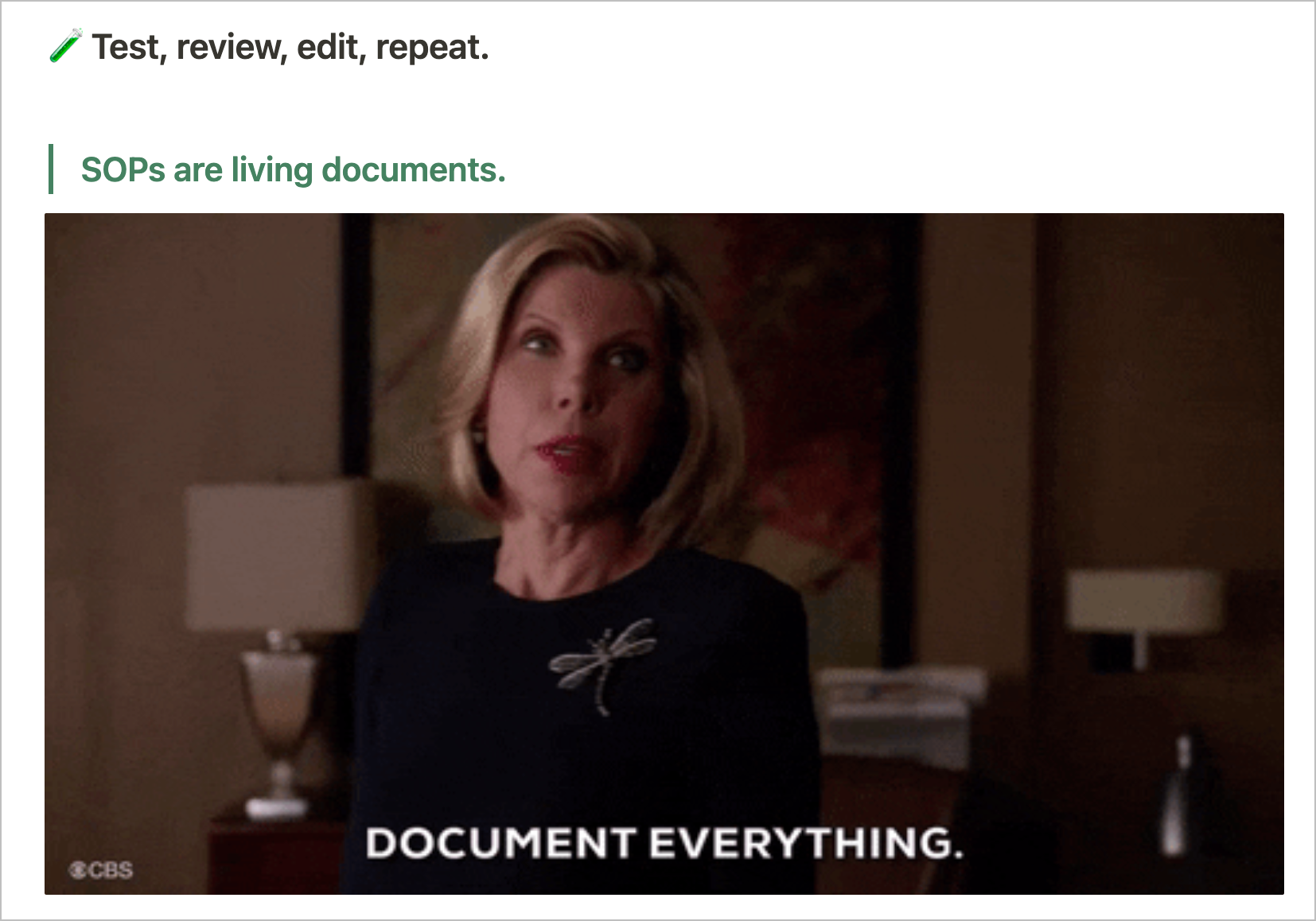
Even if you’re the only person you know IRL that uses Notion, there are still many ways to leverage this tool with the Non-Notion users in your world. These are just a few of the ways I’ve used Notion to share information in a convenient and aesthetically pleasing way with folks who have never used (or sometimes even heard of!) Notion. What ways have you used Notion with non-Notion users? Tag me on Twitter and let me know.

 Notion tips in your inbox
Notion tips in your inbox